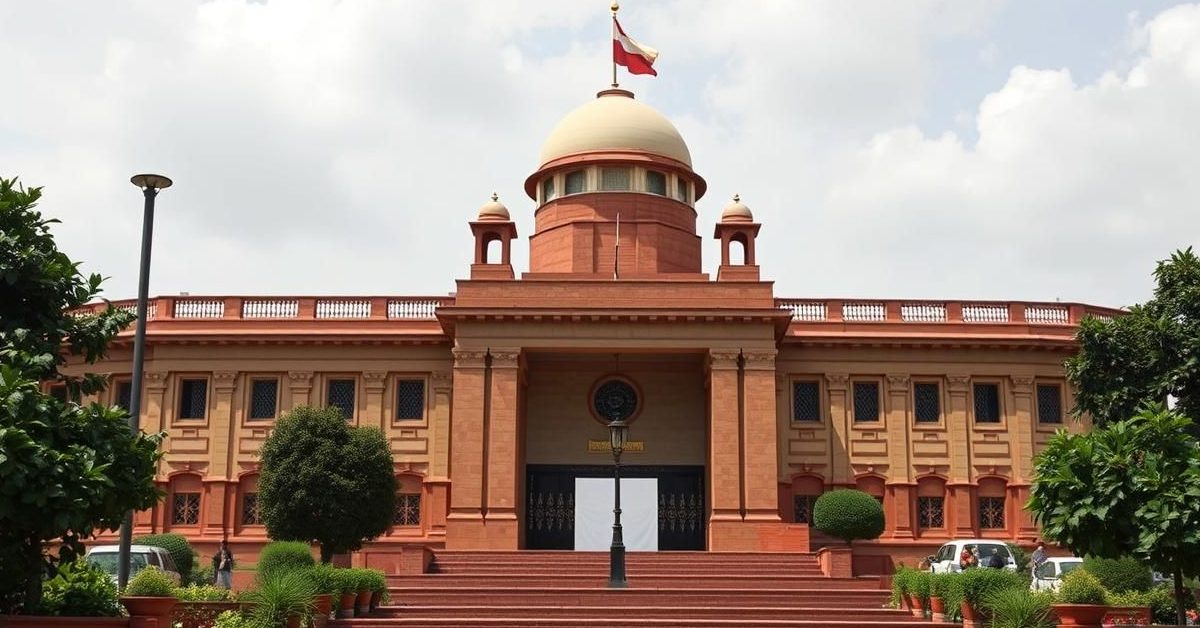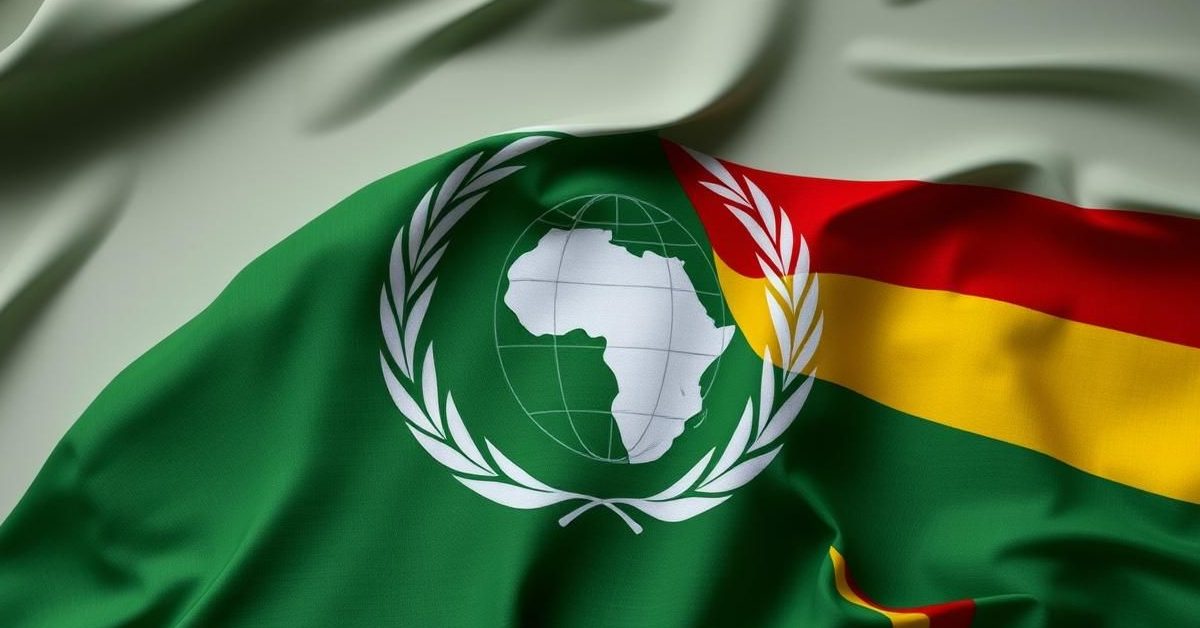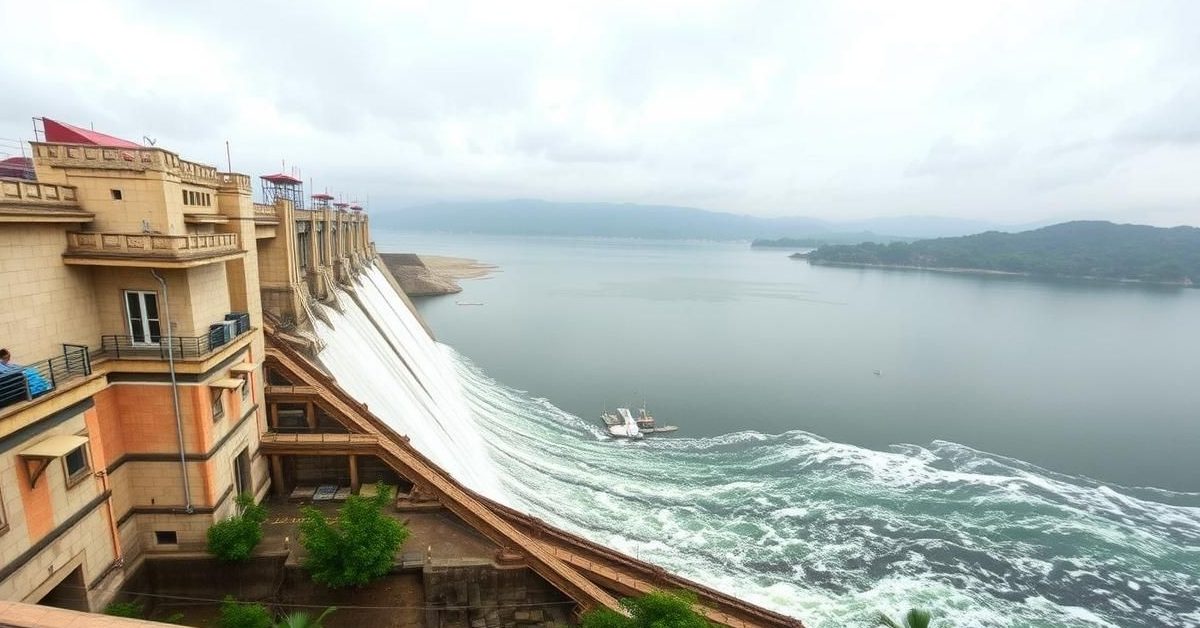This article explores recent developments across India, from judicial impeachment proceedings and evolving international relations with China to critical mineral strategies, public health concerns regarding obesity, and historical debates surrounding the Paika Rebellion.
The Process to Remove a High Court Judge
The Lok Sabha is set to initiate the process for the removal of High Court Justice Yashwant Varma. Speaker Om Birla is expected to soon form a statutory committee to investigate the grounds for removal. This follows an in-house inquiry committee’s confirmation of charges against Justice Varma, including the recovery of unaccounted cash from his official residence.
The Supreme Court will also hear Justice Varma’s challenge to the legal validity of the in-house inquiry. The procedure for removing a judge involves a multi-stage parliamentary process. If the statutory committee finds the judge guilty, a motion is debated and requires a two-thirds majority in both the Lok Sabha and Rajya Sabha to pass.
Mending Ties: India Resumes Tourist Visas for China
India has announced the resumption of tourist visas for Chinese nationals, ending a five-year suspension. This development follows the 34th meeting of the Working Mechanism for Consultation & Coordination (WMCC) on India-China border affairs in New Delhi.
Both nations expressed satisfaction with the general prevalence of peace and tranquility in border areas, paving the way for gradual normalization of bilateral relations. This move is part of broader confidence-building measures, which also include the recent resumption of the Kailash Mansarovar Yatra and discussions on restarting direct flights. The next round of Special Representatives’ talks is expected to be held in India later this year.
Powering India’s Future: The Critical Minerals Drive
Critical minerals like lithium, cobalt, and rare earth elements are becoming central to advanced manufacturing, clean energy, and national security. Global supply chains for these minerals are highly concentrated, with China dominating processing stages for most key materials.
Recognizing their strategic importance, India’s Ministry of Mines identified 30 critical minerals crucial for clean energy and future technologies. The National Critical Mineral Mission (NCMM) has been launched to secure supply chains, as India is currently 100% import-dependent for certain minerals like lithium and cobalt. The government is actively auctioning critical mineral blocks and increasing exploration efforts to develop domestic resources.
India’s Growing Obesity Challenge
New national data reveal a concerning trend in India’s public health: nearly 20% of Indian households have all adult members classified as overweight, and 10% have all adults classified as obese. This clustering is more pronounced in urban areas, linking prosperity and urbanization to altered health landscapes.
The issue is transgenerational, as children growing up in these environments are exposed to unhealthy dietary patterns and sedentary lifestyles. There is overwhelming evidence linking obesity to increased cancer risk, adding a significant burden to India’s healthcare system and household finances. Experts suggest that prevention programs should target entire households, promoting healthier habits as a family unit.
The Paika Rebellion: A Historical Uprising
A recent controversy arose over the omission of the Paika Rebellion from the latest Class VIII history textbook by the National Council of Educational Research and Training (NCERT). Former Odisha Chief Minister Naveen Patnaik voiced concerns, calling it a “huge dishonour.” NCERT has clarified that the 1817 rebellion will be included in the second volume of the textbook, slated for release later this year.
The Paika Bidroha was a significant armed resistance against the British East India Company in Odisha. The Paikas, who were hereditary military retainers of the Gajapati rulers, rebelled due to new land revenue settlements, loss of patronage, and economic hardships imposed by the British. Led by Bakshi Jagabandhu, this uprising remains a powerful symbol of Odia sub-nationalism and resistance against colonial rule.
- The impeachment process for a High Court judge involves a statutory committee investigation and a two-thirds majority vote in both Houses of Parliament.
- India has resumed tourist visas for Chinese nationals after five years, signaling a push towards normalizing bilateral relations.
- Critical minerals are vital for India’s economic growth and national security, prompting a national mission to secure their supply chains.
- Obesity is a rapidly growing public health concern in India, with household clustering and strong links to increased cancer risk.
- The Paika Rebellion of 1817 was a significant anti-British uprising in Odisha, led by the Paikas who were military retainers.
These diverse events underscore ongoing shifts in India’s governance, international relations, economic strategies, public health priorities, and historical narratives.
This article delves into significant recent developments across India, from judicial impeachment proceedings and evolving international relations to critical mineral strategies, public health concerns, and historical debates.
The Process to Remove a High Court Judge
The Lok Sabha is set to begin the process for the removal of High Court Justice Yashwant Varma. Speaker Om Birla is expected to form a statutory committee to investigate the grounds for the judge’s removal. This follows an in-house inquiry committee’s findings, which confirmed charges related to unaccounted cash found at his official residence.
The Supreme Court will separately hear Justice Varma’s challenge to the in-house inquiry’s legal validity. The procedure for removing a judge involves admitting a motion in Parliament, followed by a probe from a statutory committee. If the committee finds the judge guilty, a motion is debated and requires a two-thirds majority vote in both the Lok Sabha and Rajya Sabha to pass.
Mending Ties: India Resumes Tourist Visas for China
India has announced the resumption of tourist visas for Chinese nationals, a move that comes after a five-year hiatus. This decision follows the 34th meeting of the Working Mechanism for Consultation & Coordination (WMCC) on India-China border affairs in New Delhi.
Both countries expressed satisfaction with the general peace and tranquility in the border areas, which is leading to a gradual normalization of bilateral relations. This is part of broader confidence-building measures, including the recent resumption of the Kailash Mansarovar Yatra and discussions on restarting direct flights. The next round of Special Representatives’ talks is scheduled to be held in India later this year.
Powering India’s Future: The Critical Minerals Drive
Critical minerals like lithium, cobalt, and rare earth elements are increasingly essential for advanced manufacturing, clean energy systems, and national security. The global supply chains for these minerals are highly concentrated, with China dominating key processing stages.
Recognizing their strategic importance, India’s Ministry of Mines identified 30 critical minerals due to high import dependence and domestic resource constraints. The National Critical Mineral Mission (NCMM) aims to secure these supply chains. Currently, India is entirely import-dependent for some vital minerals like lithium and cobalt. To address this, the government has begun auctioning critical mineral blocks and the Geological Survey of India is expanding exploration efforts.
India’s Growing Obesity Challenge
Recent national data paint a concerning picture of India’s nutritional transition: nearly 20% of Indian households now have all adult members classified as overweight, and 10% have all adults classified as obese. This clustering is more prevalent in urban areas, indicating a link between prosperity, urbanization, and changing health patterns.
The transgenerational nature of this issue is particularly worrying, as children in these households are more likely to adopt unhealthy dietary and lifestyle habits. There is compelling evidence linking obesity to an increased risk of cancer, adding significant financial and health burdens on families. Public health experts emphasize that interventions should target entire households, promoting healthy eating and physical activity as a collective effort.
The Paika Rebellion: A Historical Uprising
A recent controversy erupted over the alleged omission of the Paika Rebellion from the latest Class VIII history textbook by the National Council of Educational Research and Training (NCERT). Former Odisha Chief Minister Naveen Patnaik expressed strong concern, labeling it a “huge dishonour.” NCERT has since clarified that the 1817 rebellion will be included in the second volume of the textbook, slated for release in September-October.
The Paika Bidroha was a significant uprising against the British East India Company in Odisha. The Paikas, who served as hereditary military retainers for the Gajapati rulers, rebelled due to the British’s new land revenue settlements, loss of their traditional patronage, and widespread economic hardship. Led by Bakshi Jagabandhu, this rebellion remains an important symbol of Odia sub-nationalism and resistance against colonial rule.
- The process to remove a High Court judge involves a statutory committee and a two-thirds parliamentary vote.
- India has resumed tourist visas for Chinese nationals, aiming to normalize bilateral relations after a five-year gap.
- Critical minerals are crucial for India’s economic and technological future, driving a national mission to secure domestic supply chains.
- Obesity is a rising public health concern in India, showing household clustering and a strong link to increased cancer risk.
- The Paika Rebellion of 1817 was a significant anti-British uprising in Odisha, highlighting early resistance to colonial rule.
These diverse developments underscore India’s dynamic landscape across legal, diplomatic, economic, social, and historical fronts.















